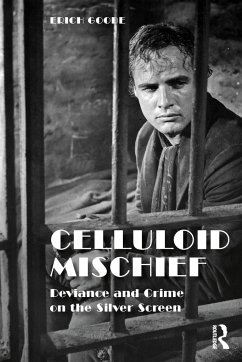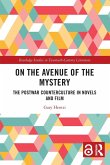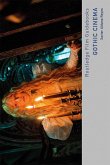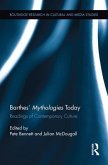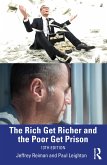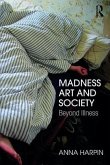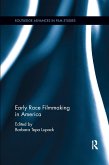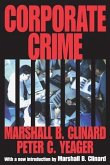Celluloid Mischief examines the portrayal of wrongdoing and "deviant" behavior in film. The premise is that films are material products of both individual and collective imagination that reflect the values and norms of the society that produce them. On this basis, it is possible to perceive how society understands and classifies particular kinds of behavior and assigns or designates classes of people and actions as "good" or "bad." So-called "wrongdoing" in movies, then, tells us about real-life norms, the violation of those norms, and the efforts to punish and control the perpetrators of those violators.
Motion pictures embody information about the social world; they constitute a universe of raw particulars that await excavation and analysis. By applying the appropriate approach, what happens on the screen can guide us to an understanding of society and culture. Films are commercial products; the people who make them are members of a society, influenced by that society, who attempt to appeal to lots of other members of that society by producing something that they want to see. A society's films tell us a great deal about the taste and proclivities of the society that produce and consume them. Using postwar and contemporary Hollywood cinema as case studies, this book demonstrates the complex and evolving nature of modern America's social, economic, and political values.
Motion pictures embody information about the social world; they constitute a universe of raw particulars that await excavation and analysis. By applying the appropriate approach, what happens on the screen can guide us to an understanding of society and culture. Films are commercial products; the people who make them are members of a society, influenced by that society, who attempt to appeal to lots of other members of that society by producing something that they want to see. A society's films tell us a great deal about the taste and proclivities of the society that produce and consume them. Using postwar and contemporary Hollywood cinema as case studies, this book demonstrates the complex and evolving nature of modern America's social, economic, and political values.
Erich Goode's book on deviance in popular movies covers acts that are condemned in both society and film as well as aberrant behavior portrayed as justifiable under the circumstances. The films discussed include deviant acts by marginalized people, upstanding members of society, the authorities, and corporate criminals. Story lines range from those that reflect and reinforce societal norms to those that present a progressive critique of the status quo. Goode's enlightening analysis of these representations should appeal to college students of all ages. An outstanding supplementary text for courses in deviant behavior, abnormal psychology, and media studies.
Ronald Weitzer
George Washington University
Examining the powerful intersection between deviance and crime and their representation in movies, Erich Goode's book suggests a thoughtful and convincing critical analysis of a large number of well-known crime related movies. This analysis provides both an intrinsically interesting, attractive and positive learning experience, as well as creating a profound and persuasive understanding of what happens when movies meet crime.
Nachman Ben-Yehuda
Hebrew University, Jerusalem
Sociologists have long recognized that "deviance" is not an attribute of the deviant so much as a category created by a culture. Erich Goode had the sensationally good idea of studying deviance by looking at one of the central points where deviance is produced and interpreted--the movies. The result is new insights into the representation of deviance in American culture, new insights into movies, and a book that is simply fun to read.
Robert Zussman
University of Massachusetts, Amherst
Beautifully written, extraordinarily researched and theoretically sophisticated, Celluloid Mischief is a path-breaking work in sociology, criminology, and cinema studies that is bound to be a classic text. Goode's novel analysis of deviance and crime in film thoroughly examines how movies both impact and reflect societal values as well as historical attempts by government and industry to regulate them. Numerous films are meticulously examined under major social and crime-type categories. A must read for scholars, students and anyone interested in the role of film in society, it would be a valued addition to a wide range of courses.
Henry N. Pontell
University of California, Irvine
A brilliant landmark case study of motion pictures and social behavior, Celluloid Mischief explores how perceived forms of "wrongful" comportment have been represented in film. Erich Goode's project is meticulously researched and delivers a stark intervention in the field of contemporary cinematic analysis. It is essential reading for not only academics and researchers, but also cineastes interested in the myriad of ways film plots, acting style, and aesthetics construct enticing images of deviance that compel praise or condemnation. Celluloid Mischief is an exemplary demonstration of the enduring power of cinema in the shaping of our collective practices and desires.
Paula Halperin
Purchase College
Ronald Weitzer
George Washington University
Examining the powerful intersection between deviance and crime and their representation in movies, Erich Goode's book suggests a thoughtful and convincing critical analysis of a large number of well-known crime related movies. This analysis provides both an intrinsically interesting, attractive and positive learning experience, as well as creating a profound and persuasive understanding of what happens when movies meet crime.
Nachman Ben-Yehuda
Hebrew University, Jerusalem
Sociologists have long recognized that "deviance" is not an attribute of the deviant so much as a category created by a culture. Erich Goode had the sensationally good idea of studying deviance by looking at one of the central points where deviance is produced and interpreted--the movies. The result is new insights into the representation of deviance in American culture, new insights into movies, and a book that is simply fun to read.
Robert Zussman
University of Massachusetts, Amherst
Beautifully written, extraordinarily researched and theoretically sophisticated, Celluloid Mischief is a path-breaking work in sociology, criminology, and cinema studies that is bound to be a classic text. Goode's novel analysis of deviance and crime in film thoroughly examines how movies both impact and reflect societal values as well as historical attempts by government and industry to regulate them. Numerous films are meticulously examined under major social and crime-type categories. A must read for scholars, students and anyone interested in the role of film in society, it would be a valued addition to a wide range of courses.
Henry N. Pontell
University of California, Irvine
A brilliant landmark case study of motion pictures and social behavior, Celluloid Mischief explores how perceived forms of "wrongful" comportment have been represented in film. Erich Goode's project is meticulously researched and delivers a stark intervention in the field of contemporary cinematic analysis. It is essential reading for not only academics and researchers, but also cineastes interested in the myriad of ways film plots, acting style, and aesthetics construct enticing images of deviance that compel praise or condemnation. Celluloid Mischief is an exemplary demonstration of the enduring power of cinema in the shaping of our collective practices and desires.
Paula Halperin
Purchase College

